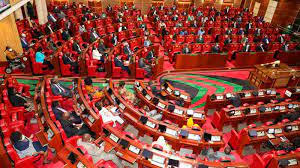Educational Proposals Voted Down By The National Assembly.
The President’s Working Party on Educational Reforms (PWPER) issued various suggestions for the education sector, including major modifications to the grading system, which shifted from the cluster point approach to the best-performed subjects. Only mathematics and one language are required under the new system.
However, these revisions have been met with opposition from a variety of sources, including the Teachers Service Commission (TSC), which expressed worry about how the changes would affect employment requirements.
Parliamentary members have now rejected these education reforms, claiming that the recommendations have not been subjected to parliamentary scrutiny and hence cannot be implemented without proper legal permission.
Members of parliament underline that the parliament’s purpose is to legislate, and that any important changes to the education system must go through parliamentary debate before becoming official.
Emuhaya MP Omboko Milemba notes a schism among stakeholders regarding these reforms, with the TSC concerned that executing the reforms without parliamentary approval could imperil the commission’s functions.
The proposed education reforms also call for the management of all institutions to be centralized under one entity. These ideas, however, will remain as recommendations until they become a bill through the normal parliamentary process.
The Majority Leader, Kimani Ichungu, wishes to confer with the Education Ministry on this topic. The Teachers Service Commission is mandated by Article 237(3) of the constitution to recruit and hire registered teachers. If the reforms are enacted without due process, the commission’s power over teacher employment criteria may be reduced.




![Kenya’s Top 10 Marketable Degree Programs [List] Kenya's Top 10 Marketable Degree Programs [List]](https://opportunitiesforkenyans.co.ke/wp-content/uploads/2025/02/Kenyas-Top-10-Marketable-Degree-Programs-List-100x70.jpg)

